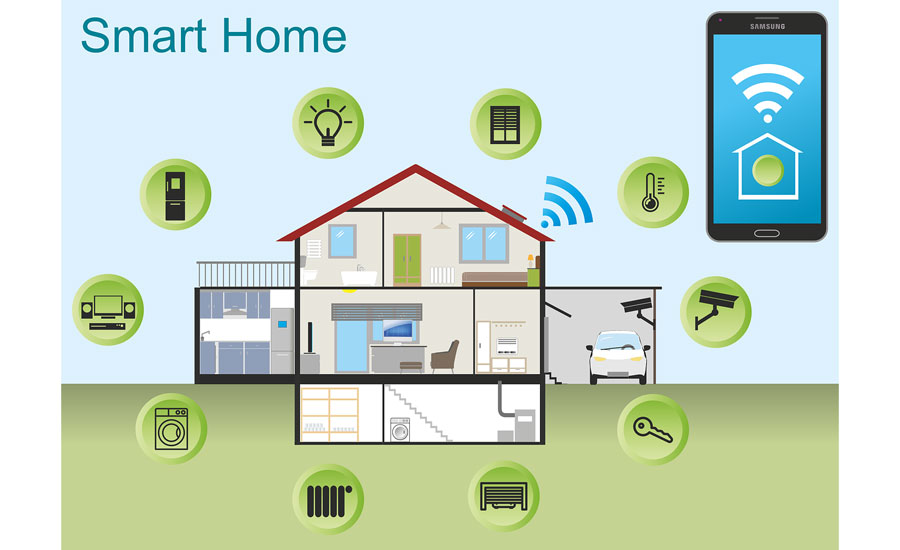The Future Of Home Heating - Just How Heat Pump Innovation Is Progressing
The Future Of Home Heating - Just How Heat Pump Innovation Is Progressing
Blog Article
Authored By-Baker Kaae
Heat pumps will certainly be a vital technology for decarbonising heating. In a scenario regular with federal governments' introduced energy and climate commitments, their worldwide capability doubles by 2030, while their share in heating rises to one-quarter.
They work best in well-insulated homes and rely upon electrical power, which can be provided from an eco-friendly power grid. Technological advancements are making them a lot more efficient, smarter and less costly.
Fuel Cells
Heatpump use a compressor, refrigerant, coils and fans to move the air and heat in homes and appliances. They can be powered by solar power or electricity from the grid. They have been gaining appeal as a result of their affordable, quiet procedure and the capacity to generate electrical energy throughout peak power demand.
https://docs.google.com/spreadsheets/d/1y5oIb3f-oUNFIWng429i9DqZozZRUtrp3eVnEBQviRo/edit?usp=drive_link , like IdaTech and BG MicroGen, are servicing gas cells for home heating. These microgenerators can change a gas central heating boiler and create several of a residence's electrical requirements with a link to the power grid for the remainder.
Yet there are factors to be doubtful of using hydrogen for home heating, Rosenow says. please click the next webpage would be costly and inefficient contrasted to other modern technologies, and it would include in carbon discharges.
Smart and Connected Technologies
Smart home technology enables home owners to attach and control their devices from another location with making use of smartphone applications. For example, smart thermostats can learn your home heating preferences and immediately get used to optimize power consumption. Smart illumination systems can be managed with voice commands and immediately switch off lights when you leave the space, reducing power waste. And wise plugs can monitor and handle your electric use, permitting you to identify and restrict energy-hungry appliances.
The tech-savvy home illustrated in Carina's interview is a good picture of just how residents reconfigure space heating techniques in the light of new clever home technologies. They depend on the gadgets' computerized functions to perform day-to-day changes and concern them as a convenient means of conducting their heating techniques. Because of this, they see no reason to adjust their techniques additionally in order to enable versatility in their home power demand, and treatments focusing on doing so might deal with resistance from these homes.
Electricity
Because heating up homes make up 13% people emissions, a switch to cleaner choices could make a big difference. Yet the innovation faces obstacles: It's expensive and requires considerable home restorations. And it's not always suitable with renewable energy sources, such as solar and wind.
Until lately, electric heatpump were too pricey to compete with gas models in a lot of markets. Yet brand-new technologies in style and products are making them a lot more inexpensive. And better cold climate performance is allowing them to operate well also in subzero temperature levels.
The following step in decarbonising home heating might be using warm networks, which attract heat from a main resource, such as a close-by river or sea inlet, and distribute it to a network of homes or structures. That would certainly minimize carbon emissions and permit homes to make use of renewable resource, such as eco-friendly electricity from a grid supplied by renewables. This choice would be less expensive than changing to hydrogen, a fossil fuel that needs brand-new framework and would just lower CO2 exhausts by 5 percent if coupled with improved home insulation.
Renewable Energy
As electricity rates go down, we're beginning to see the exact same pattern in home heating that has driven electrical cars into the mainstream-- however at an even quicker speed. The strong environment situation for impressive homes has actually been pushed even more by new study.
Renewables account for a considerable share of modern heat consumption, however have actually been provided minimal plan attention internationally contrasted to various other end-use industries-- and also much less interest than electrical energy has. Partially, this shows a mix of customer inertia, split rewards and, in lots of countries, subsidies for fossil fuels.
New technologies could make the change much easier. For instance, heatpump can be made extra power efficient by changing old R-22 refrigerants with brand-new ones that don't have the high GWPs of their precursors. Some experts additionally picture area systems that attract heat from a nearby river or sea inlet, like a Norwegian fjord. The cozy water can then be used for cooling and heating in a neighborhood.